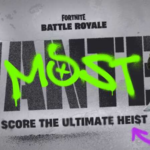Published on: 25/01/2023
Fractal coming to Polygon, co-founder announces
Justin Kan, a co-founder of the Web3 gaming platform Fractal, has announced that the platform is coming to the Polygon ecosystem. Aether Games, Phantom Galaxies, Champions Ascension, Life Beyond, Blast Royale, League of Kingdoms, Sunflower Land and other top blockchain games on Polygon will be able to use Fractal’s F Studio product suite.
The suite includes a launchpad for minting new projects, a marketplace for in-game NFTs and more. Game designers can use the Fractal SDK to create in-game marketplaces, allowing players to browse, sell and purchase NFTs without leaving the game.
Kan said the company’s primary goal is to assist game designers by providing whatever they want. “And a lot of them want to be on Polygon, to be honest,” he added.
Co-founder Robin Chan echoed Kan’s remark, saying that Fractal’s goal has always been to provide Web3 game developers the tools they need to make games of the future.
Inspired by Justin’s learnings from founding Twitch, Fractal’s mission has been to relentlessly support Web3 game developers with everything they need to build the future of gaming.
Robin Chan, co-founder of Fractal
Chan said everything from “user acquisition to blockchain tooling to financial infrastructure” had been laid out so the company could focus on producing excellent games.
He expects the partnership with Polygon Labs will speed up the future by helping the company deliver “a high-performance environment for its community.”
Regarding the new partnership, Polygon Foundation co-founder Sandeep Nailwal explained that Fractal is now a significant location for discovering blockchain games. Nailwal revealed his platform’s plan to make 2023 the year it introduces Web3 gaming to the masses by partnering with Fractal.
Fractal’s performance in recent years
Fractal debuted on Solana in late 2021. At that time, Solana’s momentum was at its peak, with $SOL nearing its all-time high price and NFT sales soaring.
The gaming-centric website and NFT marketplace garnered a receptive audience. However, according to Kan, many early buyers were there to gamble on Solana NFTs than support game projects. Nevertheless, Kan said that at the start of last year, the company sold significantly more NFTs than it should have for a new business.
Fractal then announced a $35 million seed round in April 2022. It was co-led by Paradigm and Multicoin Capital, with participation from other investors, including Andreessen Horowitz, Solana Labs, Coinbase Ventures and Animoca Brands.
However, the entire NFT market soon crashed, coinciding with the collapse of crypto prices, with $SOL now down 91 percent from its all-time high in November 2021.
The Solana NFT market evolved, with most exchanges now allowing buyers and sellers to avoid paying creator royalty fees, which are often between five percent and 10 percent of the transaction price.
Kan explained that Fractal has consistently enforced creator royalties on NFT sales as a crucial reason for Web3’s appeal to video game makers, despite receiving criticism for this policy.
Kan said that creator royalty fees are the designers’ incentive to preserve and upgrade their games and build the ecosystem. If designers and game studios are not incentivized, the games will not last.
royalties are not tips
never cheapen creator output when they drive the ecosystem
— fractal (@fractalwagmi) October 16, 2022
“I’m so bullish on open-economy games,” the 39-year-old entrepreneur said. He also asserted that open-economy games are a promising business strategy for the gaming industry. Kan believes that the world needs to see more games developed this way so that one of them can be the next Fortnite or Free Fire.
In recent months, Fractal’s secondary market trading volume has dropped drastically. Since the beginning of this month, the platform has only processed 2,660 $SOL worth of deals, or roughly $64,000 at the current price of $SOL, according to data from Tiexo.
Kan said that Solana tech is still “really compelling” despite everything that has transpired, but he admitted that the organization must broaden its focus beyond Solana.
Before 2022 ended, Fractal had already begun to build its international presence. The company started supporting Polygon-based games in addition to Ethereum’s main net games in November.
Fractal will use the zero-knowledge scalability of Polygon, released in May last year. It’s provided under the Ethereum network’s safety standards.



